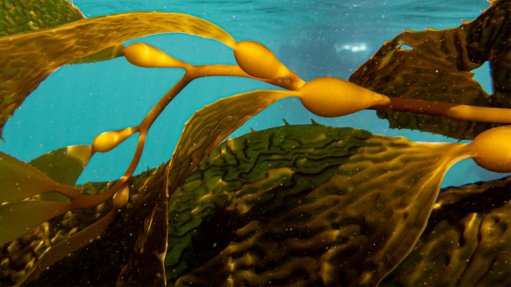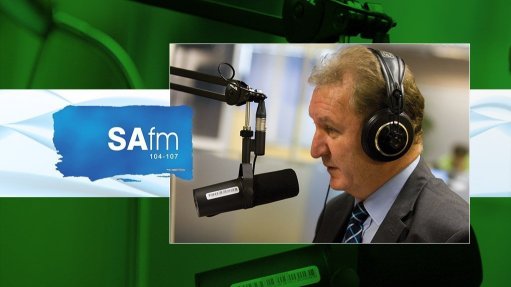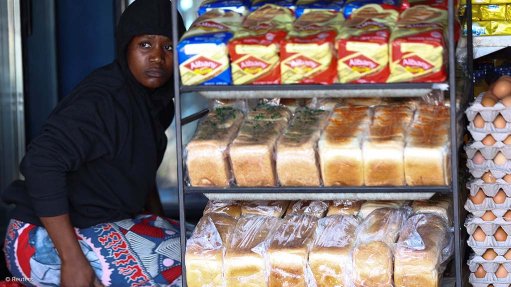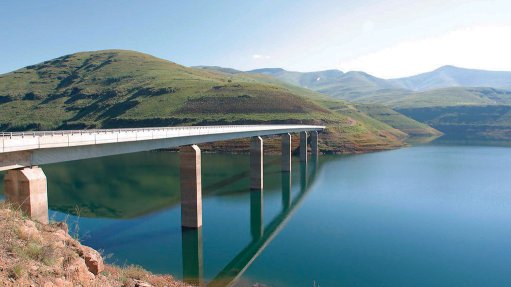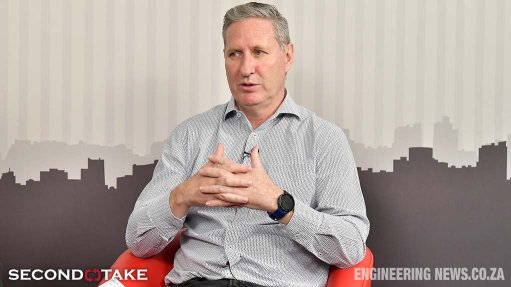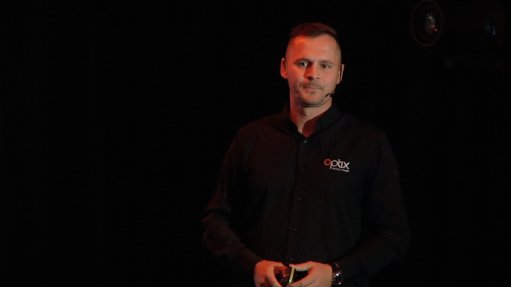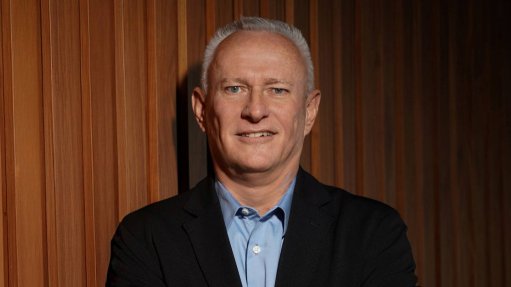Energy transition holds greatest promise for growth, job creation and development
A transition away from fossil fuel-based electricity to renewable-based electricity in South Africa can contribute significantly to job creation, growth and increased availability of electricity to support other commercial activities, four investment and energy specialists noted during a discussion on October 19.
Investment management company Futuregrowth portfolio manager and head of unlisted credit Paul Semple said the move away from reliance on a monopolistic and coal-based energy sector to new sources of generation located around the country would need to involve the private sector, which has capital to invest in the energy sector.
South Africa has rich renewable energy resources and lower seasonal variation of its renewable energy sources of wind and solar compared with many other countries, which makes the integration of these sources into the national electricity grid easier. This presents an opportunity to include large amounts of variable renewable sources into the grid cost-effectively, added Futuregrowth investment analyst Bongile James.
Beyond conducive renewable energy resources, the country also has significant mineral resources, such as vanadium, nickel, copper and aluminium, besides others, that can create new opportunities for industrialisation in the country, he noted.
EE Publishers founder and energy expert Chris Yelland highlighted that energy generation distributed across South Africa, especially in areas that have seen little investment owing to limited energy availability and affordability concerns, would enable commercial activity to be developed in these regions, which could contribute significantly to enabling commercial activities, such as agriculture and agroprocessing, as well as the design, manufacture, installation, operation and maintenance of renewable energy generation plants.
"Small and medium-sized businesses have higher job intensity per kilowatt (kW) than most other generation technologies. This means that the job creation potential of a transition is enormous," he said.
Yelland added that the world was undergoing a revolution in energy technology, and that things were changing faster than ever before. This meant that South Africa should not lock itself into technologies that may be obsolete or lead to stranded assets, but should also not dismiss energy technologies out of hand, such as nuclear energy.
However, costs remain important. Renewable energy and energy storage technologies form the dominant parts of the Integrated Resources Plan (IRP) 2019, and are the least-cost options.
While flexible generation capacity to mitigate the variability of renewable energy does add costs, when combined with the low cost of wind and solar, it is the least-cost option to deliver the energy needs of South Africa for the next ten years.
"Apart from the uncertainty around 1 500 MW of new coal power and 2 500 MW of hydropower set out in the IRP 2019, a blend of renewable sources, energy storage and flexible generation sources is the least-cost option, fulfils environmental needs, including having the lowest water use of IRP 2019 technology choices and supports South Africa's commitments to the Paris Climate Accord, and is the right solution for South Africa," Yelland said.
James further pointed out that the levelised costs for a combination of wind, solar and battery storage were about R1.55/kWh, while solar photovoltaic and battery storage costs were about R1.88/kWh, compared with nuclear at a cost of R2.50/kWh and coal at R1.68/kWh.
"This shows that a combination of renewable energy generation and storage can be an affordable solution," he said.
Yelland added that costs had to be considered in the context of long-term sustainability and affordability, highlighting that the R1.50/kWh bid by offshore natural gas providers under the Risk Mitigation Independent Power Producer Procurement Programme was linked to various indices including the rand:dollar exchange rate and the dollar price of liquefied natural gas (LNG).
Variations in these indices would have been passed through to the customer. Given the current exchange rate and LNG dollar price, this would have resulted in R6/kWh in terms of costs.
"It is unlikely the National Treasury will sign off on this bid and Eskom has indicated that it will not sign a power purchase agreement unless there are cast-iron agreements that these costs will be passed on to consumers," he noted.
Meanwhile, South Africa has, to date, procured about 6.4 GW of renewable energy from 112 independent power producers (IPPs), of which 4.2 GW is online and produced by 67 IPPs that are connected to the national grid. Renewable energy constitutes about 8% of installed generating capacity, James noted.
Semple emphasised that the solution to South Africa's energy challenges requires rapid execution of existing plans. Beyond the need to ensure energy security, South Africa risks reducing the international competitiveness of its products, especially exports, if it does not reduce the carbon intensity of its energy, as carbon taxes will be added to exports.
"Contrary to the powership bid, which would not have been a fixed investment, South Africa needs to ensure that lasting, fixed investments are secured to ensure job creation locally and ongoing supply and demand. The energy transition presents an opportunity to attract fixed investments in the country," he said.
If South Africa could consistently roll out its renewable energy procurement pipeline, there was an opportunity to develop local equipment suppliers and manufacturers. This cannot rely only on government procurement, but requires broader demand in the energy market, added James.
"This can be spurred on by government delivering on its commitment to decentralise and increase energy procurement from IPPs. This would lead to more jobs locally, bolster the local industry and grow the tax base," he said.
Futuregrowth chief investment officer Andrew Canter highlighted that the energy sector globally was undergoing a clear evolution from centralised generation to distributed generation, including mini- and microgrids.
"This evolution will happen, similar to the evolution in mobile telephony, as the economics will push the sector this way."
South Africa is at a tipping point in terms of its energy sector. There is lots of potential supply that will come on stream, but this needs the sector to be opened up. Futuregrowth believes the sector will be opened up, which would result in lots of new investments, said Semple.
"In many ways, South Africa is in a pioneering phase, with the opportunity to develop energy generation based on new technologies with proven track records. We can again become a global leader in attracting finance for and developing renewable energy, as we were ten years ago.
"There is capital waiting for suitable projects, and government needs to open the sector to allow investors to come into the sector," he concluded.
Comments
Press Office
Announcements
What's On
Subscribe to improve your user experience...
Option 1 (equivalent of R125 a month):
Receive a weekly copy of Creamer Media's Engineering News & Mining Weekly magazine
(print copy for those in South Africa and e-magazine for those outside of South Africa)
Receive daily email newsletters
Access to full search results
Access archive of magazine back copies
Access to Projects in Progress
Access to ONE Research Report of your choice in PDF format
Option 2 (equivalent of R375 a month):
All benefits from Option 1
PLUS
Access to Creamer Media's Research Channel Africa for ALL Research Reports, in PDF format, on various industrial and mining sectors
including Electricity; Water; Energy Transition; Hydrogen; Roads, Rail and Ports; Coal; Gold; Platinum; Battery Metals; etc.
Already a subscriber?
Forgotten your password?
Receive weekly copy of Creamer Media's Engineering News & Mining Weekly magazine (print copy for those in South Africa and e-magazine for those outside of South Africa)
➕
Recieve daily email newsletters
➕
Access to full search results
➕
Access archive of magazine back copies
➕
Access to Projects in Progress
➕
Access to ONE Research Report of your choice in PDF format
RESEARCH CHANNEL AFRICA
R4500 (equivalent of R375 a month)
SUBSCRIBEAll benefits from Option 1
➕
Access to Creamer Media's Research Channel Africa for ALL Research Reports on various industrial and mining sectors, in PDF format, including on:
Electricity
➕
Water
➕
Energy Transition
➕
Hydrogen
➕
Roads, Rail and Ports
➕
Coal
➕
Gold
➕
Platinum
➕
Battery Metals
➕
etc.
Receive all benefits from Option 1 or Option 2 delivered to numerous people at your company
➕
Multiple User names and Passwords for simultaneous log-ins
➕
Intranet integration access to all in your organisation





